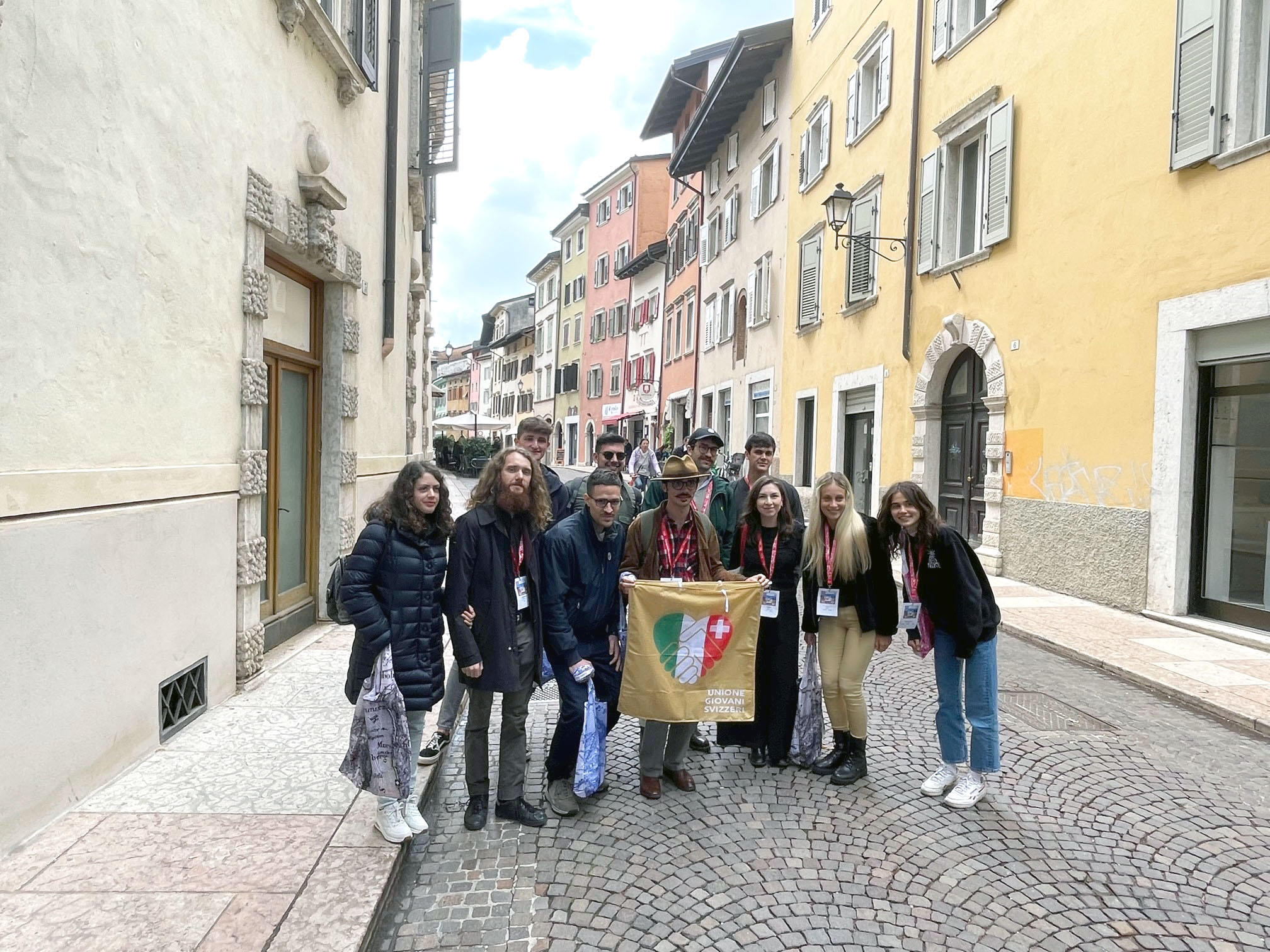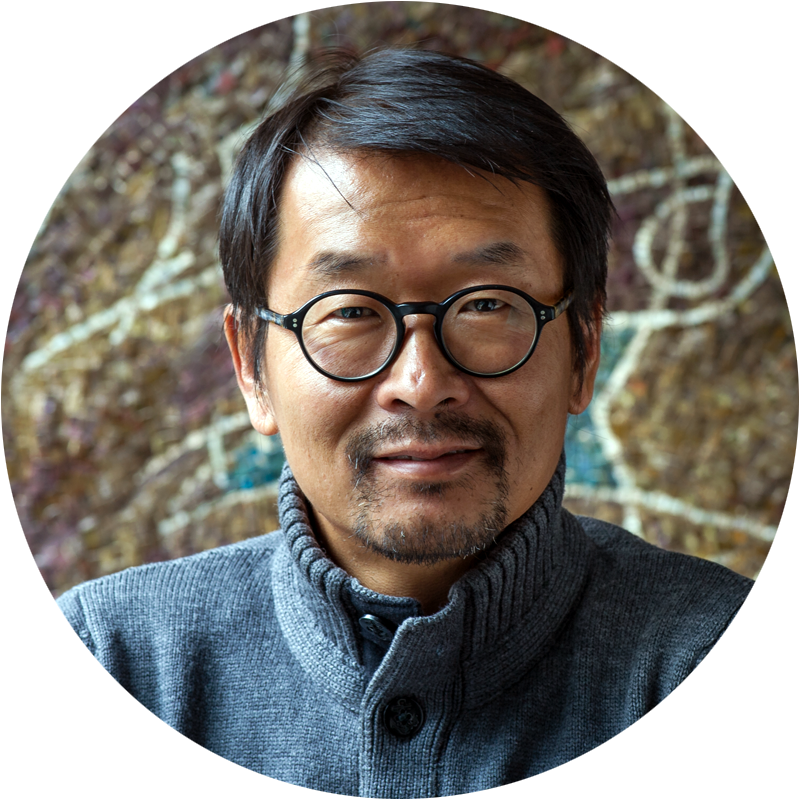Swiss youth in Italy and political participation

What relationship do Swiss youth living in Italy have with Swiss politics? SWI swissinfo.ch meets some of them during the Congresso del Collegamento Svizzero in ItaliaExternal link organised in mid-May in Trento.
“How many of you will vote in the federal elections in October?”. Among the dozen boys and girls in the room, about half raised their hands. A perfect cross-section of Switzerland, apparently, since at the last elections in 2019 the participation rate was 45%.
The boys and girls attending the assembly of the Union of Swiss Youth (Unione Giovani SvizzeriExternal link) are perhaps not a perfect representation of their Swiss peers living in Italy. Many young Swiss citizens in Italy are probably disinterested in the Swiss political scene.
However, this is not the case for those who have made the journey to Trento to attend the Congress.
“I allocate some time almost every day to follow current events on the Swiss news,” says Laetitia.
By constantly involving the citizenry in the decision-making process, the Swiss government’s semi-direct democracy has many supporters among young Swiss Abroad. Sometimes, however, it is a little difficult to ‘keep up’, Niccolò Francesco Campana admits.
“Swiss politics interests me, especially those topics that are also relevant to the country where I live, for example the pension system and its future. But when I have to have my say on referendums and initiatives at cantonal level, I find it hard to form an opinion, as I don’t live there,” he adds.
From the politicians who are supposed to represent them, members of the Union of Swiss Youth ask above all for consistency, to keep their promises and, not least, to ‘listen to each other’ in order to be able to pursue even stronger projects, according to Luca Bonicalza.
Culture of compromise
The fact of listening to each other and working together, trying to overcome partisan barriers, is perhaps one of the aspects that some young Swiss would like to see more often in Italian political life too. Even at the federal level in Switzerland, debates can sometimes be very lively and disagreements seem irremediable. However, the search for compromise, which is indispensable in a semi-direct democracy such as Switzerland’s, could serve as an example of how to carry out real ‘teamwork in order to arrive at a goal’, according to Laetitia.
“Politics in Switzerland is a bit more moralistic than in Italy,” says Niccolò. But that’s not necessarily a bad thing for some. Better a constructive confrontation than a debate where you only think about winning, sums up Laetitia.
The possibility of voting electronically – one of the recurring demands of the Swiss diaspora – is an issue that is also close to the hearts of many of the younger generation. Some of them also raise issues like climate change, relations with the European Union and equal pay for men and women.
Studying in Switzerland
But the issue they are most concerned about is more practical in nature.
“For us, one of the key issues is that of scholarships,” says Bianca Rubino, vice-president of the Union.
Many boys and girls of Swiss origin who have finished high school in Italy wish to continue their academic studies in Switzerland. This is the case, for example, with Emma*, (*not her real name) who has not yet turned 18 . She is at the Congress to also obtain information on the possibilities of obtaining a scholarship.
Laetitia, for her part, has studied in Switzerland.
“Paradoxically, it was almost easier for me to study in Switzerland than in Italy. As a Swiss citizen you have advantages. My brother also moved to Switzerland to do an apprenticeship,” she says.
Information on financial support from the cantons (responsible for scholarships) is considered quite satisfactory, although perhaps – Niccolò emphasises – ‘a bit more could be done to publicise these possibilities’. Another common gripe is that the information on scholarships is not always easy to disentangle, as each canton has different rules.
In other areas, too, the level of information availability could be improved.
“To do my military service in Switzerland, I had several difficulties in understanding how to go about it,” says Raffaele Sermoneta, newly appointed president of the Union.
And as part of the Swiss Abroad, do they feel they are taken sufficiently into account by Swiss institutions? In general, the service provided to citizens abroad by the Swiss government was judged very favourably by the Swiss youth present in Trento. For example, when it comes to receiving documents ‘the system is very efficient’, stresses one of them.

In compliance with the JTI standards
More: SWI swissinfo.ch certified by the Journalism Trust Initiative













You can find an overview of ongoing debates with our journalists here . Please join us!
If you want to start a conversation about a topic raised in this article or want to report factual errors, email us at english@swissinfo.ch.